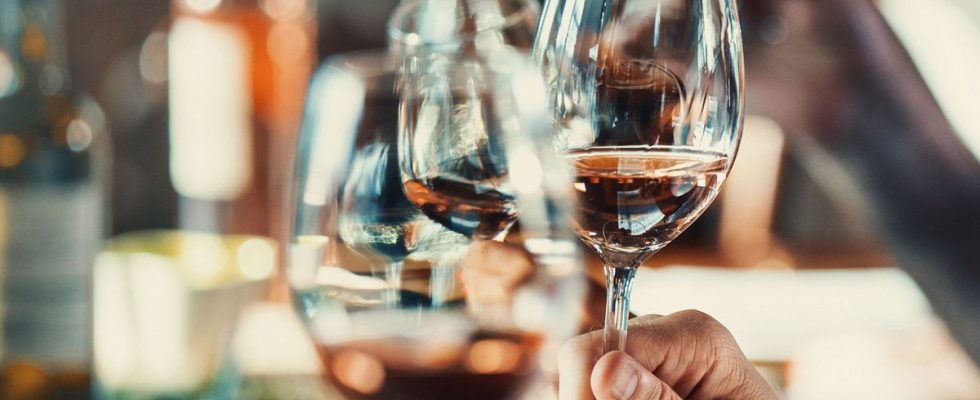Published on
Updated
Reading 3 min.
Our alcohol consumption could depend on the size of the wine glasses. A surprising observation established by British researchers who carried out an experiment in around twenty pubs in England over four weeks. Their work shows lower consumption of wine when the largest quantities – portions larger than 125 ml – were withdrawn from sale.
The month of January is over, and with it the Dry, Damp and other Tryanuary which is appropriate to start thinking about your alcohol consumption. Now established in habits, in many countries around the world, these experiences, regardless of the variant chosen, aim not only to become aware of the quantities usually ingested, but also – of course – to reduce alcohol consumption. long-term. A team of researchers from the University of Cambridge also looked into the subject, with the same objective, but by carrying out a much more surprising experiment.
The researchers looked at the quantity of alcohol served in establishments licensed to sell this type of drink. To do this, they conducted their research in 21 approved establishments, mainly pubs, which offered wine by the glass in quantities greater than 125 ml (175 ml or 250 ml, more precisely). The study was carried out over periods of four weeks: a first period without intervention, a second during which the largest quantities of wine were withdrawn from sale, and again a third period without intervention.
Less alcohol consumption
Published in the journal PLOS Medicine, their work shows that removing the largest quantity of wine from the menu significantly reduced customer consumption. In detail, this led to an average drop of almost 8% in the quantity of wine sold daily in the establishments concerned. Interestingly, the researchers point out that sales of beer and cider have not increased in parallel, showing that customers are not turning to these two other types of alcohol to the detriment of wine.
“It seems that when the larger quantity of wine by the glass was not available, people turned to the smaller options, but did not drink the equivalent amount of wine. People tend to consume a specific number of “units” – in this case glasses – regardless of serving size. So a person may initially decide to limit themselves to two glasses of wine and, by consuming less alcohol in each glass, they drink less in total“, explains Dr. Eleni Mantzari, co-author of this study, in a press release.
“A contribution to the health of the population”
However, affecting the quantities of wine sold in bars or pubs, on a large scale, remains a complicated measure to apply. Contrary to what the researchers thought, only four establishments reported complaints from customers, but they specify that “the alcohol industry would likely oppose a nationwide policy, given that it could reduce sales of targeted drinks“. The study carried out by the University of Cambridge presents another limitation: the researchers were not able to evaluate the sales of other alcoholic drinks – excluding wine, beer and cider – making it impossible to know whether customers compensated for this. ‘missing’ with other types of alcohol.
“It should be remembered that no level of alcohol consumption is considered safe for health, and even light consumption contributes to the development of many cancers. Although the reduction in the amount of wine sold in each establishment is relatively small, even a small reduction could make a significant contribution to the health of the population“, concludes Professor Dame Theresa Marteau, main author of this work.
According to the World Health Organization, “harmful use of alcohol” is responsible for 3 million deaths each year worldwide, or 5.3% of all deaths. Of the ten countries with the highest alcohol consumption in the world, no less than eight are in the European Union. An observation at the origin of EVID-ACTION project in the EU which aims to raise public awareness of the risks of cancer caused by alcohol consumption, and to put strategies in place to limit these risks.
